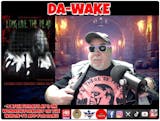Last summer, Old School Shirts did a profile of sports entrepreneur John F. Bassett. Now, a book titled The Life and Teams of Johnny F. Bassett has been released. It mostly covers his life in sports and it is a must read for fans of the World Hockey Association (WHA), World Football League (WFL), United States Football League (USFL), and indeed any fan interested in pro sports history, particularly that of so-called rebel leagues.
On the Mt. Rushmore of rebel leagues you would surely find Johnny F. Bassett, along with AFL (4) founder Lamar Hunt, USFL founder Don Dixon, and the somewhat controversial Gary Davidson (ABA, WHA, and WFL co-founder). Bassett, a talented athlete in his youth and the son of a Canadian media mogul, first entered the rebel league business when he, and a consortium of partners, purchased the ailing Ottawa Nationals of the WHA in 1973. He moved the team to Toronto feeling fans there would support a second pro hockey team. The popular Maple Leafs of the National Hockey League (NHL), at the time, had been underwhelming on the ice, and Bassett thought his Toronto Toros could establish a foothold.
The Toros eventually wound up in Birmingham, Alabama and were renamed the Bulls. Skating in a challenging market that wasn’t very familiar with the game, Bassett’s team met with moderate success in Birmingham both on the ice and at the ticket window.
Prior to moving his hockey team to Alabama, Bassett got mixed up in the WFL and attempted to bring a team to Toronto. Threatened with legal action by the Canadian government to prevent a U.S.-based football league from operating in the country, the team moved to Memphis, Tennessee before the start of its first season.
After his failed stints in the WFL and WHA, Bassett became quite the real estate mogul, developing a hugely successful tennis-themed resort on Florida’s Gulf Coast in the early 1980s. In 1982, he was approached by Don Dixon about joining a new football league venture, one that would play its games in the spring, and would avoid the mistakes of the WFL.
Reluctant at first, Bassett joined the USFL and established the Tampa Bay Bandits, and while he avoided the mistakes of the disastrous WFL, many of his fellow owners did not. The USFL’s problems were exacerbated in its second season when a fellow real estate mogul bought the New Jersey Generals. The new owner, Donald Trump, almost immediately insisted the league move to a fall schedule and compete head-to-head with the established National Football League (NFL), a decision that greatly contributed to the USFL’s demise. Bassett passed away in 1985, before the issue came to a head.
Author Denis M. Crawford details all these ventures, supported by interviews with Bassett’s family, friends, and business associates along with copious amounts of archival research. For aficionados of rebel leagues, many of the tales told are well known. However, Crawford manages to uncover many new ones while adding fascinating details to the others.
In the book’s forward, he warns that there may be some aspects of Bassett’s life and career that might seem regrettable now. It turns out, however, that these incidents were simply the result of the times, namely the 1970s and 1980s.
For example, Bassett used to allow fans of his Birmingham Bulls hockey team to bring Confederate flags to games. But it was the late 1970s, and folks simply weren’t woke, especially in Alabama. In another instance, Bassett signed Tony McKegney, a black player, to the Bulls. Many fans threatened to boycott the team. The owner fielded many angry phone calls but in the end relented and allowed McKegney to sign with the NHL’s Buffalo Sabres, with whom he went on to have a stellar career.
The USFL Bandits had promotions featuring sometimes scantily-clad ladies. Again, not woke times. True, we should review these stories through the lens of today’s cultural landscape but also with some understanding. It should not overshadow Bassett’s many successes, his overall influence on today’s pro sports landscape, or the fact that he, unlike many rebel owners, operated completely above board, paid his teams’ bills including, most importantly, players’ salaries.
There are few tiny errors in the book. The Chicago WHA franchise, for example, is referred to as the Chicago Crusaders in one passage. They were the Cougars. The Crusaders were in Cleveland. Also, it is stated that NHL’s Kansas City Scouts and California Golden Seals folded. They did not. The Scouts moved to Denver in 1976 and became the Colorado Rockies, before moving to New Jersey in 1982. The Golden Seals moved to Cleveland in 1976 and became the Barons. Two years later they merged with the Minnesota North Stars with the combined club keeping the latter’s name.
Overall, though, this is a very fine book that measures up well against other must-reads in your rebel league library, and deserves a spot in your shelf.



